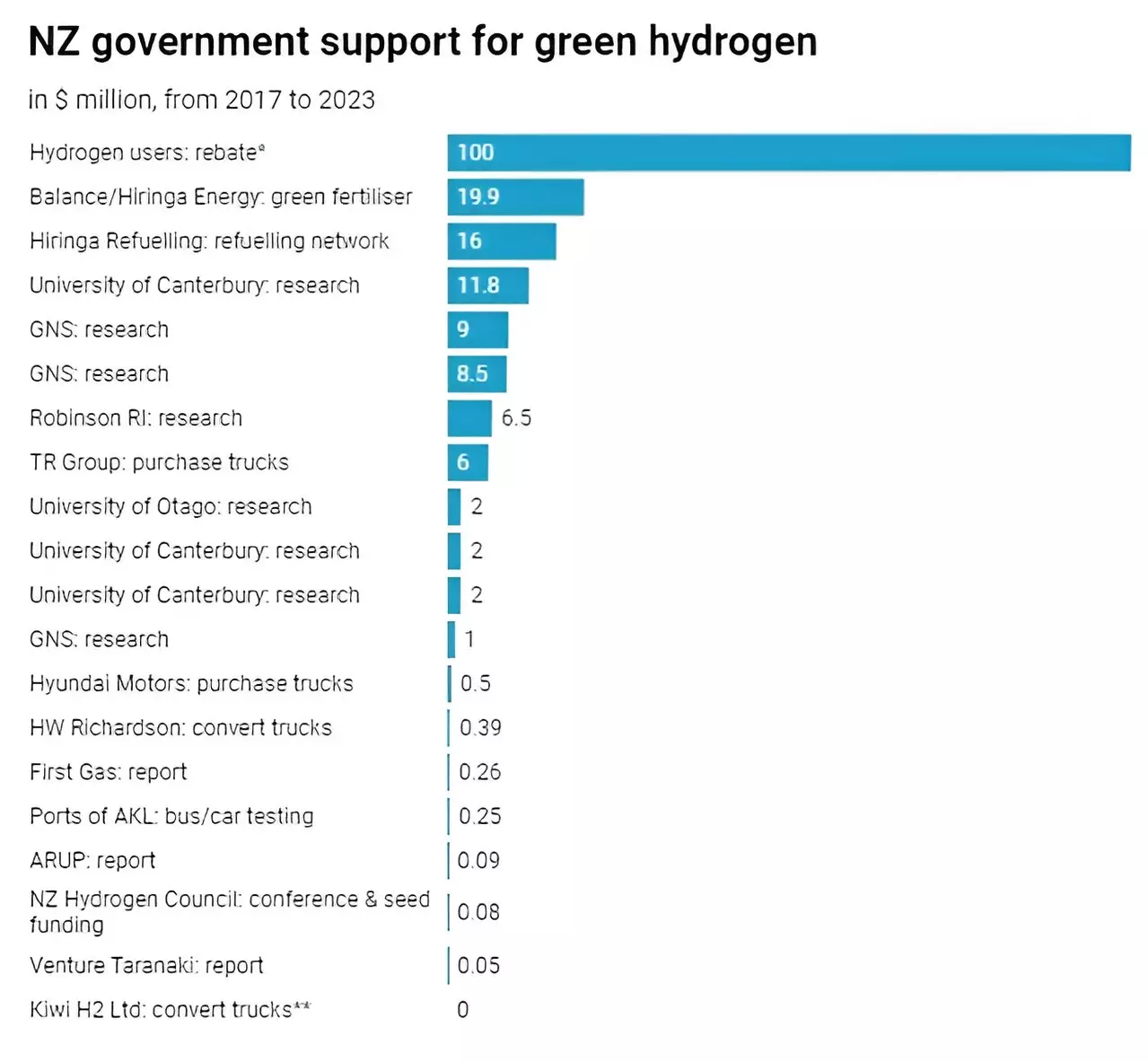

The recent setback in the deal to supply hydrogen-powered trucks to New Zealand, coupled with the removal of a government rebate scheme, raises concerns about the uncertain future of green hydrogen technology in the country. The government’s significant investments and strategies towards transitioning to green hydrogen appear to face obstacles as key players like Hyzon pull out of agreements at short notice. Despite the global interest in hydrogen as a future energy solution, critical voices in New Zealand seem to be missing from the discourse.
Over the years, the New Zealand government has shown strong support for green hydrogen initiatives, investing millions in research, infrastructure, and industry partnerships. Proponents argue that green hydrogen is essential for sectors that are challenging to decarbonize through direct electrification, such as heavy road transport, shipping, and fertilizer production. However, differing opinions on the viability and benefits of hydrogen technology persist.
Government reports and industry analyses on green hydrogen portray an optimistic outlook, highlighting opportunities and downplaying challenges or weaknesses. The absence of critical analysis in media reports and expert discussions raises concerns about the lack of balanced perspectives on the potential drawbacks of green hydrogen. While success stories and international collaborations are praised, the shortcomings and inefficiencies of hydrogen technology are often overlooked.
Experts like David Cebon and Michael Barnard have raised valid concerns about the efficiency and cost-effectiveness of green hydrogen compared to alternative technologies like battery electric vehicles. Continued advancements in battery technology and fast-charging systems suggest that hydrogen fuel cells may become obsolete in certain applications, particularly in road transport. Critiques of green hydrogen’s practicality and economic viability are essential for informed decision-making in the energy sector.
Analyses like Michael Liebreich’s “hydrogen ladder” provide evidence-based frameworks for prioritizing investments and resource allocations in the energy transition. By focusing on applications with the highest potential and cost-effectiveness, policymakers can ensure that limited resources are directed towards projects that align with New Zealand’s decarbonization goals. Initiatives like green steel production, green ammonia, and fertilizer manufacturing could offer more viable alternatives to fossil fuel-dependent industries.
To navigate the complexities of transitioning to green hydrogen and achieving sustainable energy goals, stakeholders must adopt a more nuanced perspective that considers the challenges and limitations of the technology. Independent advice free from commercial interests is crucial in shaping government policies and investment decisions in the energy sector. A revised green hydrogen narrative that incorporates critical analysis and realistic assessments will enable New Zealand to make informed choices in its decarbonization journey.
While green hydrogen holds promise as a clean energy solution, it is essential to acknowledge and address the existing uncertainties and criticisms surrounding its implementation. By fostering open debates, embracing diverse viewpoints, and prioritizing evidence-based strategies, New Zealand can steer towards a more sustainable and effective energy transition.
In the world of pharmaceuticals, innovation often hinges on finding new compounds that can lead…
In the heart of the Amazon basin, drastic climate changes present an alarming reality that…
Air fryers have rapidly surged in popularity, captivating home cooks and culinary enthusiasts alike. When…
In an era where technology and social media reign, the importance of sleep often takes…
In an era where environmental consciousness is paramount, the maritime industry has long been scrutinized…
Radionuclides, often relegated to discussions surrounding nuclear energy and radioactive waste, have far-ranging implications for…
This website uses cookies.